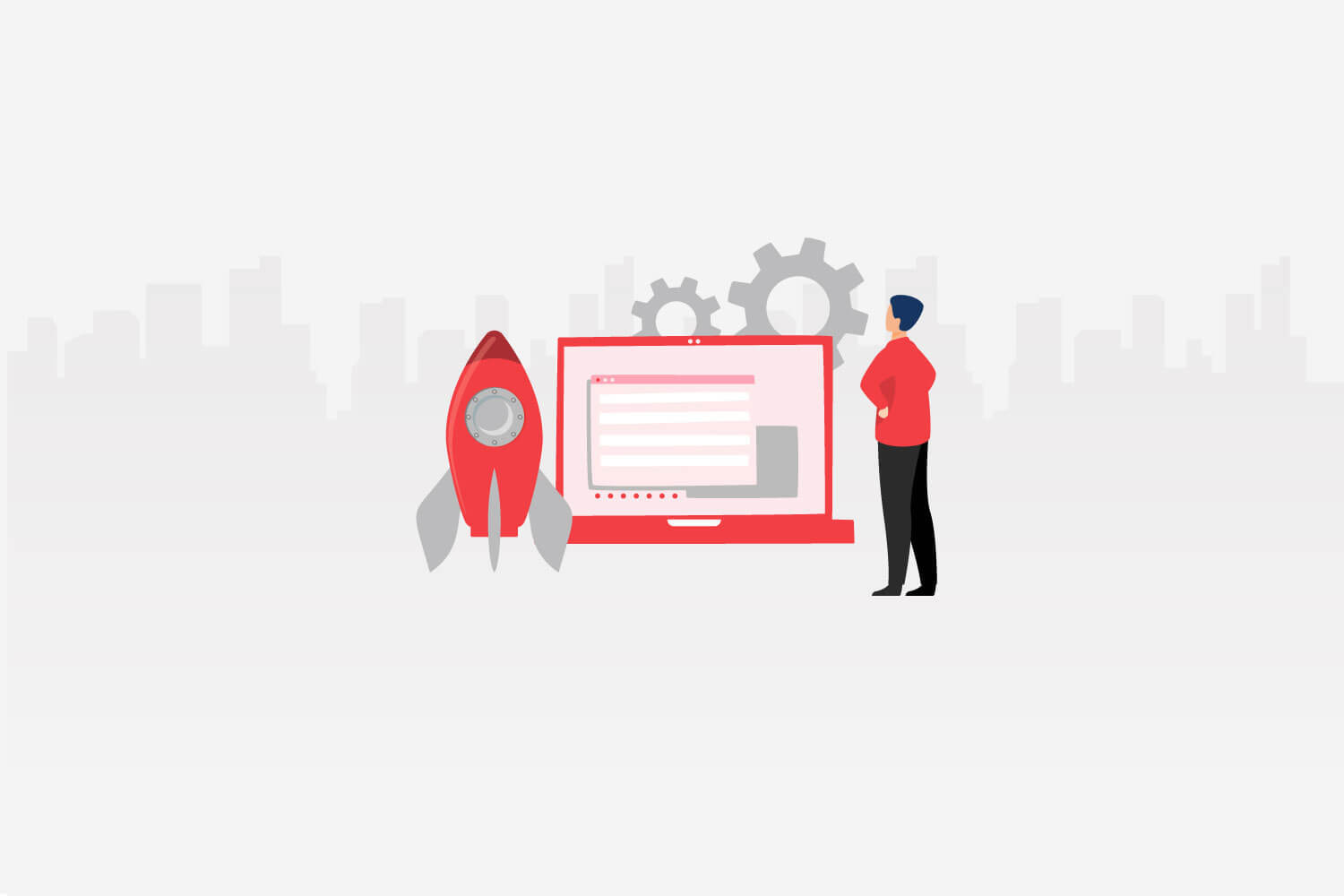In today’s fast-paced and ever-changing world, the ability to overcome challenges and adapt to new circumstances has become crucial for success in the workplace. As employers recognize the significance of resilience in navigating obstacles, assessing this trait during the recruitment process has become essential. This blog explores the importance of assessing resilience in recruitment for overcoming challenges and highlights the benefits it brings to organizations.
The blog begins by providing an understanding of the role resilience plays in recruitment. It emphasizes the link between resilience and overcoming challenges, demonstrating how resilience contributes to adaptability and growth. The subsequent sections delve into practical aspects, discussing key traits and characteristics to look for when identifying resilience in candidates. Strategies for assessing resilience are explored, including behavioral interviews, situational judgment tests, reference checks, role-play exercises, and dedicated resilience assessments.
Understanding the role of resilience in recruitment
Recruitment processes are no longer solely focused on finding candidates with the right skills and qualifications. Employers are increasingly recognizing the importance of assessing resilience in candidates to ensure they can overcome challenges and thrive in a dynamic and ever-changing work environment.
Resilience refers to an individual’s ability to bounce back from setbacks, adapt to change, and maintain a positive mindset in the face of adversity. In the context of recruitment, resilience plays a crucial role in determining a candidate’s potential for long-term success and their ability to contribute positively to an organization.
By assessing resilience during the recruitment process, employers gain valuable insights into a candidate’s ability to handle stress, manage difficult situations, and persevere in the face of obstacles. This is particularly crucial in industries and roles that demand adaptability, problem-solving, and the ability to navigate uncertain and challenging circumstances.
Resilient employees bring a multitude of benefits to an organization. They are more likely to remain motivated and engaged, even during times of upheaval or change. Their ability to bounce back from failures or setbacks means they are more willing to take calculated risks and embrace innovative approaches. Moreover, resilient individuals often possess strong problem-solving skills, allowing them to find creative solutions when faced with complex challenges.
Understanding the role of resilience in recruitment enables employers to make informed decisions about candidates who not only have the necessary skills and qualifications but also possess the mental fortitude to thrive in a dynamic and demanding work environment. By incorporating resilience assessments into the hiring process, organizations can build teams that are better equipped to overcome obstacles, adapt to change, and ultimately drive success.
The link between resilience and overcoming challenges
Resilience is a fundamental trait that plays a crucial role in an individual’s ability to overcome challenges successfully. It is the key factor that enables individuals to bounce back, adapt, and thrive in the face of adversity. In the context of recruitment, understanding the link between resilience and overcoming challenges is essential for identifying candidates who possess the mental fortitude and determination necessary to navigate and triumph over difficult situations.
When faced with obstacles or setbacks, resilient individuals are more likely to maintain a positive mindset and view challenges as opportunities for growth. They possess a strong sense of self-belief and have the ability to persevere despite difficult circumstances. This resilience allows them to learn from failures, adapt their strategies, and ultimately find success.
Moreover, resilient individuals exhibit high levels of emotional intelligence and self-awareness. They are adept at managing stress and regulating their emotions, which enables them to maintain composure and make rational decisions in challenging situations. Their ability to stay calm and composed under pressure allows them to think clearly and find effective solutions.
Resilience also fosters a growth mindset, which is crucial for personal and professional development. Resilient individuals embrace challenges as learning opportunities and are more likely to seek feedback, engage in continuous learning, and develop new skills. Their openness to learning and their willingness to adapt enable them to overcome obstacles more effectively and reach higher levels of achievement.
In the recruitment process, recognizing the link between resilience and overcoming challenges allows employers to identify candidates who possess the necessary grit and determination to face and conquer adversity. By selecting resilient individuals, organizations can build teams that are better equipped to handle unexpected setbacks, find innovative solutions, and achieve long-term success.
Key benefits of assessing resilience in the recruitment process
Assessing resilience as part of the recruitment process offers several significant benefits for organizations seeking to build a strong and resilient workforce. By evaluating candidates’ resilience, employers gain valuable insights that can greatly impact their decision-making and contribute to the overall success of the organization.
One key benefit of assessing resilience is the ability to identify candidates who possess the mental fortitude and emotional strength to navigate and overcome challenges. Resilient individuals demonstrate a higher likelihood of maintaining motivation and engagement, even during times of adversity. They have the capacity to bounce back from failures and setbacks, approaching them as opportunities for growth. By selecting candidates with these traits, organizations can cultivate a workforce that can effectively adapt to changing circumstances and maintain productivity in the face of challenges.
Assessing resilience also allows employers to gauge a candidate’s ability to manage stress and regulate their emotions. Resilient individuals tend to exhibit strong emotional intelligence, enabling them to remain calm and composed under pressure. This trait is invaluable in high-pressure work environments, as it promotes effective decision-making, problem-solving, and conflict resolution.
Furthermore, resilient individuals often possess strong problem-solving skills and a proactive approach to overcoming obstacles. Their ability to think creatively and find innovative solutions enables them to navigate complex challenges effectively. By assessing resilience, employers can identify candidates who are likely to contribute fresh perspectives and novel approaches to problem-solving within the organization.
Overall, assessing resilience in the recruitment process helps organizations build a resilient workforce that can thrive in the face of adversity, maintain motivation and engagement, manage stress effectively, and contribute to innovative problem-solving. By selecting candidates with high levels of resilience, organizations position themselves for long-term success and growth.
Traits and characteristics to look for
Identifying resilience in candidates during the recruitment process requires a keen understanding of the traits and characteristics that exemplify this essential quality. By recognizing and assessing these key attributes, employers can effectively identify individuals who possess the resilience necessary to navigate and overcome challenges. Here are some traits and characteristics to look for when identifying resilience:
1. Adaptability: Resilient individuals demonstrate a high degree of adaptability. They are flexible and open to change, able to adjust their strategies and approaches in response to new circumstances or unexpected challenges.
2. Positive mindset: Resilience often goes hand in hand with a positive mindset. Candidates who possess resilience tend to maintain an optimistic outlook, viewing setbacks as temporary and challenges as opportunities for growth.
3. Perseverance: Resilient individuals exhibit perseverance in the face of adversity. They are determined and persistent, willing to put in the effort required to overcome obstacles and achieve their goals.
4. Emotional intelligence: Emotional intelligence is a crucial component of resilience. Candidates with strong emotional intelligence can effectively manage their emotions, remain calm under pressure, and empathize with others, enabling them to navigate challenging situations more effectively.
5. Problem-solving skills: Resilient individuals are often adept problem solvers. They approach challenges with a solution-oriented mindset, seeking creative and innovative ways to overcome obstacles.
6. Self-confidence: Resilience is often associated with self-confidence. Candidates who possess a healthy level of self-confidence are more likely to believe in their abilities and have the courage to take risks, even in the face of uncertainty.
7. Strong support network: Resilient individuals recognize the value of a strong support network. They seek and leverage support from others, whether it be colleagues, mentors, or friends, to help them navigate challenges and bounce back from setbacks.
By evaluating these traits and characteristics in candidates, employers can effectively identify individuals who possess the resilience needed to thrive in a dynamic and challenging work environment. Incorporating these assessments into the recruitment process can help build a resilient workforce capable of overcoming obstacles and driving success.
Strategies for assessing resilience in candidates
Assessing the level of resilience in candidates is a critical component of the recruitment process, as it provides valuable insights into their ability to navigate challenges and adapt to adversity. Here are some effective strategies for assessing resilience in candidates:
1. Behavioral interviews: Conducting behavioral interviews allows recruiters to assess a candidate’s past experiences and how they handled difficult situations. By asking questions that focus on challenges faced and how they were overcome, recruiters can gain insights into a candidate’s resilience, problem-solving skills, and ability to learn from setbacks.
2. Situational judgment tests: Situational judgment tests present candidates with hypothetical scenarios that mirror real-world work challenges. Candidates are asked to choose the most appropriate course of action, providing recruiters with a glimpse into their decision-making processes, problem-solving abilities, and resilience in the face of complex situations.
3. Reference checks: Contacting the candidate’s references can offer valuable insights into their resilience. By speaking with previous employers or colleagues, recruiters can gather information on how the candidate handled adversity, coped with stress, and demonstrated resilience in their previous roles.
4. Role-play exercises: Role-play exercises simulate challenging work scenarios, allowing candidates to showcase their problem-solving skills, adaptability, and resilience in real-time. Observing how candidates respond to unexpected obstacles and pressures can provide valuable insights into their ability to remain composed and find effective solutions.
5. Resilience assessments: Some organizations use specific resilience assessments or questionnaires to measure a candidate’s resilience levels. These assessments often include questions related to stress management, adaptability, perseverance, and problem-solving skills. The results can provide a standardized measurement of a candidate’s resilience.
By utilizing these strategies, recruiters can gain a comprehensive understanding of a candidate’s resilience, enabling them to make more informed decisions during the recruitment process. Assessing resilience helps organizations identify individuals who have the mental fortitude and adaptability to overcome challenges, contribute positively to the team, and thrive in a dynamic work environment.
How resilience contributes to adaptability and growth
Resilience is closely intertwined with adaptability and growth, playing a significant role in an individual’s ability to navigate change, embrace challenges, and achieve personal and professional growth. Here’s how resilience contributes to adaptability and growth:
1. Embracing change: Resilient individuals are more open and receptive to change. They view change as an opportunity for growth rather than a threat. Their ability to adapt and adjust to new circumstances enables them to embrace change more readily and effectively.
2. Learning from setbacks: Resilience allows individuals to bounce back from setbacks and learn from their experiences. Rather than being discouraged by failures, resilient individuals use them as learning opportunities. They identify areas for improvement, adjust their strategies, and approach future challenges with newfound knowledge and resilience.
3. Developing problem-solving skills: Resilience fosters the development of strong problem-solving skills. When faced with challenges, resilient individuals approach them with a solution-oriented mindset. They seek innovative approaches, consider different perspectives, and find creative solutions to overcome obstacles, promoting adaptability and growth.
4. Building self-confidence: Resilient individuals develop a sense of self-confidence that enhances their adaptability and growth. Their ability to overcome challenges and persevere through adversity builds their belief in their own capabilities. This self-confidence enables them to take on new opportunities, embrace growth-oriented risks, and continuously push their limits.
5. Expanding comfort zones: Resilience empowers individuals to step out of their comfort zones and embrace new experiences. By facing and conquering challenges, resilient individuals expand their comfort zones, allowing for personal and professional growth. They become more comfortable with uncertainty and change, enabling them to adapt and thrive in dynamic environments.
Overall, resilience contributes to adaptability and growth by fostering a mindset that embraces change, learning from setbacks, developing problem-solving skills, building self-confidence, and expanding comfort zones. Organizations that recognize the importance of resilience can cultivate a culture of adaptability and growth, supporting their employees in navigating challenges and unlocking their full potential.
Integrating resilience assessment into the hiring process: Best practices
Integrating resilience assessment into the hiring process can significantly enhance the ability of organizations to select candidates who possess the necessary mental fortitude and adaptability to thrive in challenging work environments. Here are some best practices for effectively integrating resilience assessment into the hiring process:
1. Define resilience criteria: Start by clearly defining the specific resilience traits and characteristics that are essential for success in the desired role or within the organization. This will serve as a guide for evaluating candidates and ensure consistency throughout the assessment process.
2. Utilize a multi-method approach: Employ a combination of assessment methods to evaluate resilience. This can include behavioral interviews, situational judgment tests, role-play exercises, reference checks, and specialized resilience assessments. A multi-method approach provides a comprehensive evaluation of a candidate’s resilience from various perspectives.
3. Train interviewers and assessors: Provide training and guidance to interviewers and assessors on effectively evaluating resilience. This includes understanding the indicators of resilience, asking targeted questions, and using scoring rubrics or evaluation frameworks to assess candidate responses consistently.
4. Incorporate scenario-based assessments: Design scenario-based assessments that simulate challenging work situations candidates are likely to encounter. Evaluate their responses, problem-solving abilities, adaptability, and resilience in handling these scenarios. This allows for a more realistic evaluation of a candidate’s resilience and their potential to overcome similar challenges in the workplace.
5. Consider past experiences: Probe into a candidate’s past experiences and accomplishments to gain insights into their resilience. Ask for examples where they demonstrated resilience, bounced back from failures, or achieved success despite obstacles. These experiences can provide valuable evidence of a candidate’s resilience in action.
6. Evaluate growth mindset: Assess a candidate’s mindset towards growth and development. Look for indicators of a growth mindset, such as their willingness to learn from setbacks, embrace feedback, and continuously improve. A growth mindset is closely tied to resilience and contributes to adaptability and growth within the organization.
By integrating resilience assessment into the hiring process using these best practices, organizations can make more informed decisions and select candidates who possess the resilience needed to thrive in dynamic work environments. This approach ensures that the organization builds a resilient workforce capable of overcoming challenges, driving innovation, and achieving long-term success.
Conclusion
Assessing resilience in the recruitment process is crucial for organizations aiming to build resilient teams capable of overcoming challenges and driving success. The ability to adapt, persevere, and maintain a positive mindset in the face of adversity is a valuable quality that enables individuals to navigate uncertainty and contribute to the growth of the organization.
One valuable tool that can aid in assessing communication skills during the recruitment process is Testlify. Testlify offers a range of assessments specifically designed to evaluate candidates’ resilience. Through our platform, recruiters can administer tests that assess resilience, interpersonal and collaboration skills, and the ability to handle real-world scenarios.
With our extensive test library, you can objectively evaluate candidates’ abilities, ensuring you shortlist the most talented individuals efficiently.
Ready to unlock the potential of your hiring process? Book a free 30-minute live demo with Testlify. Our expert team will guide you through the platform, showcasing relevant skill tests tailored to your organization’s needs. With our support, you can streamline candidate selection, saving valuable time and resources
By incorporating Testlify into the recruitment process, organizations can enhance their ability to identify top talent with exceptional resilience, ensuring a workforce that can effectively engage with customers, collaborate within teams, and contribute to the organization’s overall success.








